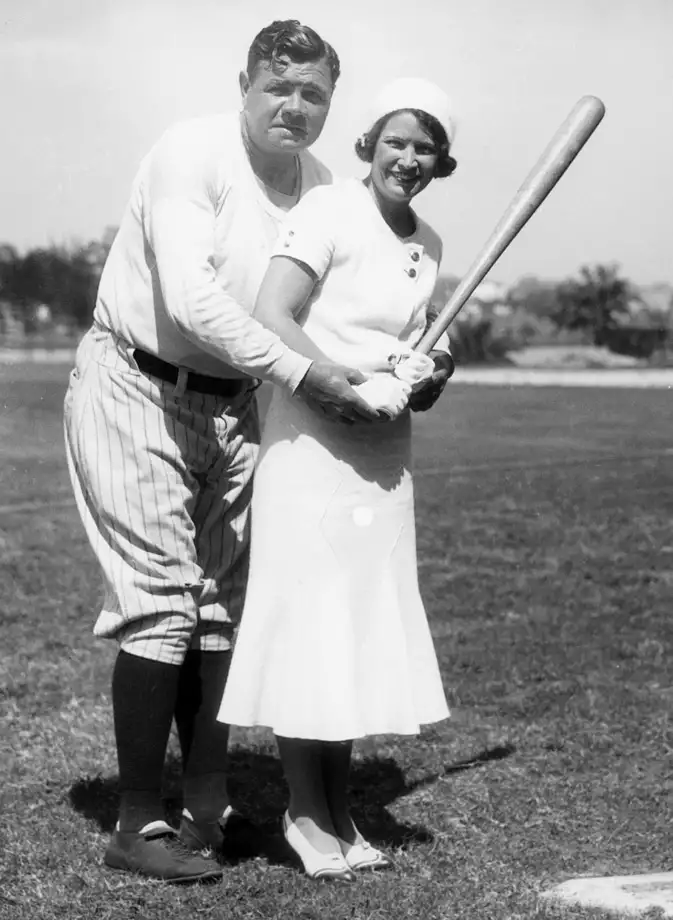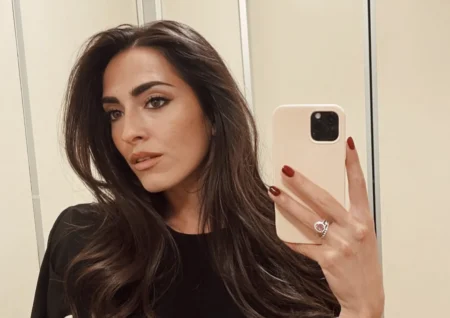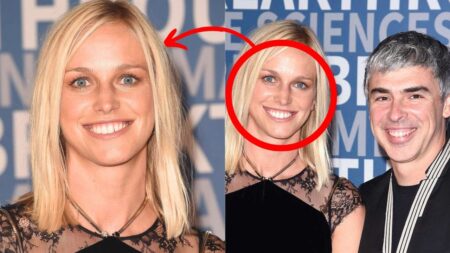Babe Ruth, a name synonymous with baseball, is a legend whose fame transcends the boundaries of the sport. Known for his remarkable records and charismatic personality, Ruth’s legacy continues to captivate fans decades after his passing. However, beneath the surface of his celebrated career, a persistent question has stirred controversy and debate: Was Babe Ruth Black?
This question has sparked countless discussions, fuelled by rumors and speculations that have circulated for years. Despite Ruth’s German ancestry and his status as a white athlete in the segregated era of professional sports, speculation about his racial background has been a recurring theme.
The rumors are not baseless, as they stem from various aspects of Ruth’s life and career, including his physical features, personal relationships, and even incidents on the baseball field.
The question of Ruth’s race is not merely a curiosity about a baseball legend’s ancestry. It is a topic that delves into the complex history of race relations in America, the dynamics of racial identity, and the intersection of sports and society.
As we explore this intriguing aspect of Babe Ruth’s life, we aim to present a balanced and comprehensive perspective, grounded in known facts and credible accounts.
In this article, we will delve into the various facets of this controversy, examining the evidence, discussing the implications, and shedding light on why the question “Was Babe Ruth Black?” continues to resonate in the annals of baseball history.
Table of Contents
- 1. Babe Ruth’s Early Life, Family Background, and Ancestry
- 2. Babe Ruth was an Extraordinary Baseball Player
- 3. Speculations and Evidence Answering the Question: Was Babe Ruth Black?
- 4. Babe Ruth’s Stance on Race
- 5. The Impact of the Rumors (Was Babe Ruth Black)
- 6. Modern Perspectives on the Question: Was Babe Ruth Black
- 7. Conclusion
- 8. FAQs on “Was Babe Ruth Black?”
Babe Ruth’s Early Life, Family Background, and Ancestry

Born on February 6, 1895, in Baltimore, Maryland, George Herman Ruth Jr., better known as Babe Ruth, had a challenging upbringing. His early life was marked by poverty and hardship, a stark contrast to the fame and fortune he would later achieve.
Ruth’s family roots trace back to Germany. His parents, George Herman Ruth Sr. and Katherine Schamberger, were both of German descent. This German ancestry is an established fact, yet it hasn’t entirely quelled the rumors about Ruth’s racial background.
The difficulty in tracing Ruth’s paternal lineage has added fuel to these speculations. The lack of comprehensive records and the complexities of his family history have left room for conjecture and debate.
Adding to the intrigue are the rumors surrounding Ruth’s childhood. It’s said that he was often taunted with the nickname “nigger lips” a derogatory term that hinted at African ancestry. This nickname, used in the racially charged environment of the time, has been cited as a potential clue to Ruth’s racial background.
Further complicating Ruth’s family history are the rumors about his possible illegitimacy. His parents’ troubled marriage, marked by infidelity and eventual divorce, has led some to speculate that Ruth might have been the product of an extramarital affair. These speculations, while unproven, have contributed to the ongoing debate about Ruth’s race.
In exploring Babe Ruth’s early life and family background, we encounter a complex tapestry of facts, rumors, and unanswered questions. These elements, intertwined with the larger narrative of his life and career, provide a fascinating backdrop to the enduring question: Was Babe Ruth Black?
Babe Ruth was an Extraordinary Baseball Player
Babe Ruth’s baseball career is a story of extraordinary achievement and enduring legacy. His journey from a young pitcher for the Boston Red Sox to a legendary slugging outfielder for the New York Yankees is a testament to his talent, determination, and charisma.
Ruth began his Major League Baseball career as a pitcher for the Boston Red Sox in 1914. His prowess on the mound was quickly evident, but it was his switch to being a full-time batter that truly set the stage for his legendary status.
In 1919, Ruth was sold to the New York Yankees, a move that would forever change the course of his career and the history of baseball.
As a Yankee, Ruth transformed into a powerhouse hitter, earning the nickname “The Sultan of Swat.” His ability to hit home runs with remarkable frequency revolutionised the game, turning baseball into a spectacle of power and excitement.
Ruth’s records, including his 60 home runs in a single season in 1927 and his career total of 714 home runs, stood unchallenged for decades.
But Ruth’s impact on baseball extended beyond his impressive statistics. He brought an unprecedented level of popularity to the sport, drawing large crowds with his charismatic personality and thrilling performances. His larger-than-life persona, coupled with his extraordinary talent, made him a cultural icon.
Babe Ruth’s baseball career is a key part of his story. His achievements on the field, his transformation of the game, and his enduring popularity all contribute to the fascination surrounding his life. And within this narrative, the question of his racial background adds another layer of intrigue to the legend of Babe Ruth.
Speculations and Evidence Answering the Question: Was Babe Ruth Black?
The speculations about Babe Ruth’s racial background are rooted in various aspects of his life and career. From his physical features to his personal relationships and experiences, several pieces of evidence have fueled the debate about Ruth’s race.
One of the primary factors leading to the speculation about Ruth’s race were his physical features. Ruth had broad lips and a wide nose, traits that some suggested hinted at African ancestry. These features, coupled with his dark complexion, led to rumors and speculation about his racial background.
Throughout his career, Ruth endured racial slurs from opponents and critics. One notable incident involved Ty Cobb, a fellow baseball legend known for his aggressive behavior and racial prejudice.
According to a story by sportswriter Fred Lieb, Cobb refused to share a cabin with Ruth on a hunting trip, stating, “I’ve never bedded down with a nigger and I’m not going to start now.”
Ruth’s personal relationships also added to the speculation about his race. He had friendships with black athletes and artists, and he was rumored to have a preference for black women.

His adopted daughter, Julia Ruth Stevens, even suggested that Ruth would have recruited black players if he had been allowed to manage a Major League Baseball team.
Ruth’s participation in barnstorming tours against Negro League teams further fueled the rumors. He played against some of the best black players of his time, including the legendary Satchel Paige, with whom Ruth developed a friendship.
One incident that particularly stands out occurred during the 1922 World Series. Johnny Rawlings, a player for the Giants, shouted racial slurs at Ruth.
Ruth, enraged, confronted Rawlings in the Giants’ locker room after the game. This incident, while not widely reported at the time, has been cited as evidence of the racial prejudice Ruth faced.
The question of Babe Ruth’s race is a complex one, with various pieces of evidence contributing to the speculation. While none of this evidence conclusively proves that Ruth was black, it paints a picture of a man who navigated the racial dynamics of his time in a unique and intriguing way.
Babe Ruth’s Stance on Race
Babe Ruth’s stance on race was progressive for his time, particularly within the context of the segregated world of professional sports.
His actions and attitudes suggested support for racial integration in Major League Baseball, years before Jackie Robinson broke the color barrier in Major League Baseball in 1947.
Ruth was known for his refusal to acknowledge the racial barriers that defined Major League Baseball during his career.
He openly interacted with black athletes, both on and off the field, and expressed a desire to see African Americans included in the big leagues. This was a bold stance, given the pervasive racism and segregation in professional sports at the time.
One of the most notable examples of Ruth’s support for racial integration was his participation in barnstorming tours against Negro League teams.
These tours, which took place during the offseason, allowed Ruth to compete against some of the best black players of his time. His involvement in these tours was a clear statement of his disregard for the color line in baseball.
Beyond the baseball field, Ruth’s interactions with the black community in New York City further demonstrated his inclusive attitude towards race.
He was a frequent visitor to Harlem, a predominantly black neighbourhood, where he socialised at the Cotton Club and other popular venues. These interactions, while seemingly ordinary, were significant in a time when racial segregation was the norm.
In conclusion, Babe Ruth’s stance on race was a testament to his character and his vision for baseball. His support for racial integration, his refusal to acknowledge racial barriers, and his interactions with the black community all paint a picture of a man who was ahead of his time in his views on race.
While these actions do not definitively answer the question of Ruth’s racial background, they add another layer of complexity to the enduring legend of Babe Ruth.
The Impact of the Rumors (Was Babe Ruth Black)

The rumors about Babe Ruth’s racial background had a significant impact on his life and career. They shaped his interactions with others, influenced his public image, and added a layer of complexity to his legacy.
Throughout his career, Ruth had to navigate the racial prejudices of his time. He faced racial slurs from opponents and critics, and the rumors about his race likely influenced how he was perceived by fans, fellow players, and the media.
Despite these challenges, Ruth managed to maintain his focus on the game, achieving a level of success that has made him one of the most celebrated figures in the history of sports.
The rumors also had a personal impact on Ruth. They likely influenced his relationships, his social interactions, and his sense of identity. While Ruth publicly denied the rumors about his race, it’s clear that they were a part of his life and his experience as a public figure.
The ongoing debate about Ruth’s race is significant in understanding the history of race relations in America. It highlights the complexities of racial identity and the impact of racial prejudices on individuals and society.
The question of Ruth’s race is not just about one man’s background; it’s about a larger conversation on race, identity, and the history of race relations in America.
In the end, whether Babe Ruth was black or not remains a question without a definitive answer. What is clear, however, is that the rumors about his race have contributed to the enduring fascination with his life and legacy.
They have added depth to the story of Babe Ruth, making it a compelling narrative of race, identity, and the American experience.
Modern Perspectives on the Question: Was Babe Ruth Black
The question of Babe Ruth’s racial background continues to intrigue modern audiences, reflecting the enduring interest in Ruth’s life and the broader issues of race and identity in America.
One notable perspective comes from black filmmaker Spike Lee.
In a 2001 article in Gotham magazine, Lee suggested that DNA testing could be used to determine Ruth’s ancestry, much like it was used to investigate the rumors about Thomas Jefferson fathering children with his slaves. Lee’s father, a huge baseball fan, always said Ruth had “some of the tar brush in him.” This suggestion reflects the ongoing curiosity about Ruth’s race and the desire for a definitive answer.
The continued interest in Ruth’s racial background also speaks to the broader implications of the question of Ruth’s race.
It highlights the complexities of racial identity and the ways in which race is perceived and understood in America. The debate about Ruth’s race challenges the binary concept of race, suggesting that racial identity can be a complex and nuanced matter.
Furthermore, the question of Ruth’s race underscores the impact of racial prejudices and the legacy of segregation in America. It serves as a reminder of the racial barriers that existed during Ruth’s time and the progress that has been made since then.
In conclusion, the modern perspectives on Babe Ruth’s racial background add another dimension to the ongoing debate about his race. They highlight the enduring relevance of the question of Ruth’s race and its significance in understanding the history of race relations in America.
Conclusion
Babe Ruth’s story, with its enduring questions about his racial background, offers a unique lens through which to understand the history of race in America.
His life and career unfolded during a time of deep racial segregation and prejudice, and the rumors about his race provide a glimpse into the complexities of racial identity during this period.
If Ruth was indeed of mixed race, the implications would be profound. As one of the most celebrated figures in the history of sports, Ruth had a significant impact on baseball and American society.
His potential mixed heritage would add another layer to his legacy, challenging the racial norms of his time and offering a powerful narrative of success and achievement against the odds.
Regardless of his racial background, Babe Ruth’s influence on baseball and American culture is undeniable.
His records, his larger-than-life personality, and his impact on the game have made him a lasting symbol of American sports. The question of his race adds depth to his story, making it a compelling exploration of race, identity, and the American experience.
In the end, the question “Was Babe Ruth Black?” remains unanswered. But the debate it sparks, and the insights it offers into the history of race relations in America, ensure that Babe Ruth’s story will continue to captivate and inspire for generations to come.
FAQs on “Was Babe Ruth Black?”
This question has been a topic of debate for many years. While there is no definitive evidence to confirm that Babe Ruth was Black, there were rumors and speculations about his racial background during his lifetime. Ruth’s parents were of German ancestry, but difficulties in tracing his paternal lineage have contributed to the speculation about his race.
Some people believe Babe Ruth was Black due to certain physical features, his childhood nickname “nigger lips”, and the racial slurs he endured during his career. Additionally, Ruth had a strong affinity for Black culture, had friendships with Black athletes, and participated in barnstorming tours against Negro League teams, which further fuelled the rumors.
Babe Ruth publicly denied the rumors about his race. However, he did face racial slurs during his career and was known to have challenged those who used such slurs against him.
Babe Ruth was supportive of racial integration in Major League Baseball. He participated in barnstorming tours against Negro League teams and expressed a desire to see African Americans included in the big leagues. According to his adopted daughter, Julia Ruth Stevens, Ruth would have recruited Black players if he had been allowed to manage a Major League Baseball team.
The question of Babe Ruth’s race highlights the complexities of racial identity and the impact of racial prejudices on individuals and society. It serves as a reminder of the racial barriers that existed during Ruth’s time and the progress that has been made since then. The ongoing debate about Ruth’s race challenges the binary concept of race, suggesting that racial identity can be a complex and nuanced matter.
George Herman is the birth name of Babe Ruth.
Josh Gibson was an African American baseball player who is often compared to Babe Ruth.
Sources:
Read More Interesting Stories:
- Why Did Elvis Presley Not Tour Internationally: Shocking Reasons
- Who is Manuela Escobar: Drug Lord Pablo Escobar’s Daughter (Her Life, Net Worth)
- RRR Star Ray Stevenson Dies at 58: Everything About His Life
- Sebastian Marroquin: Everything About Pablo Escobar’s Son
- The Strange Story of Albert Einstein’s Brain After Death & The Key Findings
- Victoria Anne Simmons: Everything About Justine Simmons Daughter












